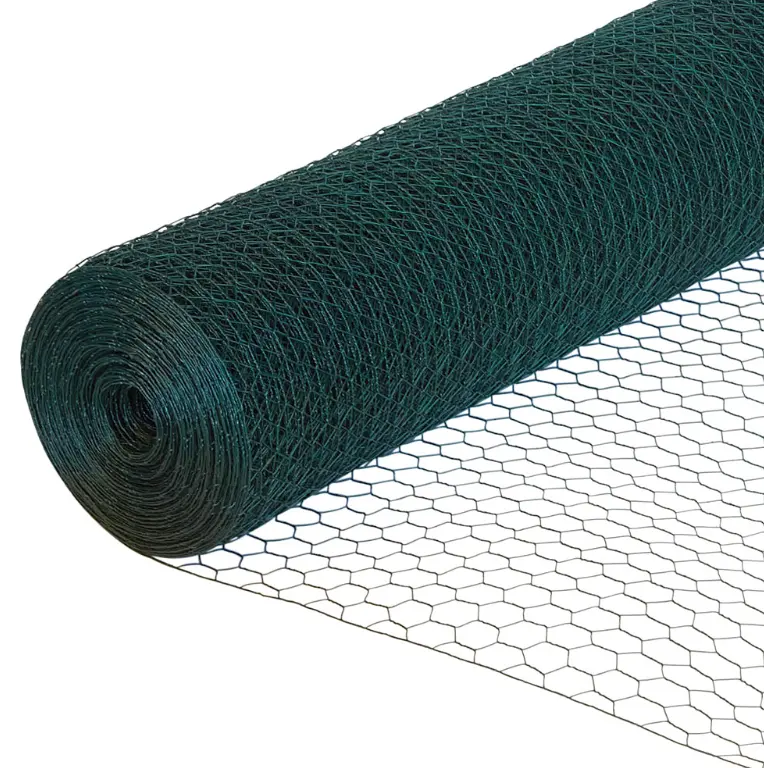PVC coated hexagonal wire mesh can be used for a variety of applications, including fencing, animal enclosures, and construction. However, it may not be the best choice for all repair projects.
Here are some reasons why:
Strength: While PVC coated hexagonal wire mesh is strong and durable, it may not be strong enough for some repair projects. Depending on the size and weight of the object being repaired, a stronger material such as steel or aluminum may be required.
Corrosion: While the PVC coating on the wire mesh can provide some protection against rust and corrosion, it may not be enough for outdoor or marine environments where the mesh may be exposed to saltwater or harsh weather conditions. In these cases, a material such as stainless steel may be a better choice.
UV resistance: PVC coated hexagonal wire mesh may not be UV resistant, which means that it may degrade or become discolored over time when exposed to sunlight. This can be a concern for outdoor applications where the mesh will be exposed to direct sunlight.
Appearance: While PVC coated hexagonal wire mesh can be aesthetically pleasing, it may not be the best choice for projects where appearance is a primary concern. pvc coated hexagonal wire mesh Depending on the color and texture of the mesh, it may not blend in well with the surrounding environment or look as professional as other materials.
Overall, PVC coated hexagonal wire mesh can be a good choice for some repair projects, but it is important to consider factors such as strength, corrosion resistance, UV resistance, and appearance before choosing this material.
What are some aesthetically pleasing materials that I can use for my repair project?
There are many aesthetically pleasing materials that you can use for your repair project, depending on the type of repair and the desired look.
Here are some options to consider:
Stainless steel: Stainless steel is a durable and corrosion-resistant material that can add a sleek and modern look to your repair project. It is often used for appliances, kitchen fixtures, and outdoor furniture.
Glass: Glass can be used for a variety of repair projects, from window panes to light fixtures. It can add a contemporary and elegant touch to any project, and can be customized with different colors, textures, and finishes.
Wood: Wood is a classic and versatile material that can be used for a variety of repair projects, from flooring to furniture. Different types of wood, such as oak, maple, and cherry, can add warmth and character to your project.
Stone: Stone is a durable and natural material that can add a rustic and timeless look to your repair project. It can be used for flooring, walls, and outdoor landscaping, and comes in a variety of colors and textures.
Ceramic tiles: Ceramic tiles are a popular choice for kitchens, bathrooms, and other areas where moisture is a concern. They come in a variety of colors, patterns, and finishes, and can add a decorative and functional touch to your repair project.
Concrete: Concrete can be used for a variety of repair projects, including flooring, walls, and outdoor landscaping. It can be customized with different colors, textures, and finishes, and can add an industrial and contemporary look to your project.
These are just a few examples of aesthetically pleasing materials that you can use for your repair project. Consider the style and function of your project, and choose a material that will enhance its overall look and appeal.

